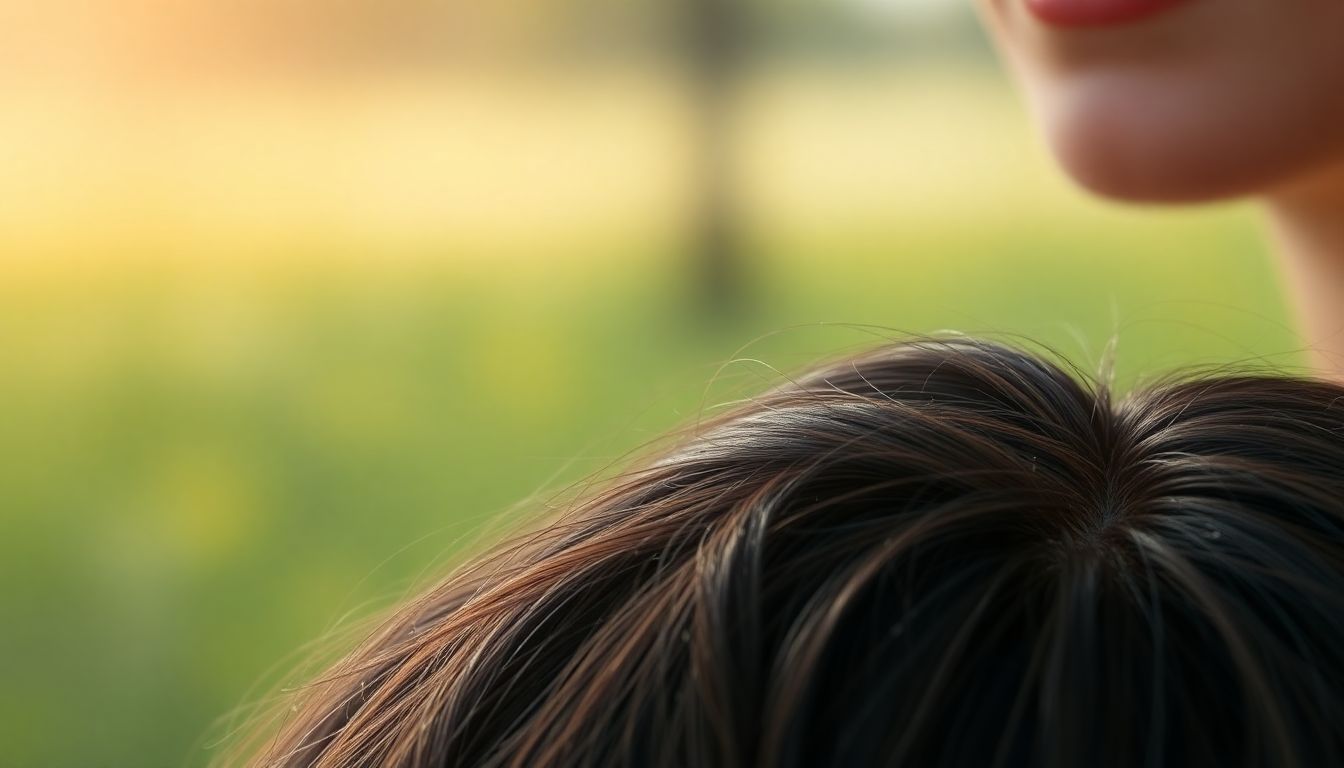
Hair loss affects millions of people globally. Studies show that around 50 million men and 30 million women in the U.S. experience hair loss. The most common types include androgenetic alopecia, seen in both genders, and telogen effluvium, often triggered by stress or diet changes. This article explores natural ways to prevent hair loss, offering practical tips and expert advice.
Lifestyle Changes for Hair Health
Balanced Diet and Nutrition
Eating well is crucial for healthy hair. Essential nutrients like protein, iron, zinc, and biotin play a significant role in hair growth. Foods that boost these nutrients include:
- Protein: Eggs, fish, and nuts.
- Iron: Spinach, lentils, and red meat.
- Zinc: Pumpkin seeds, chickpeas, and oysters.
- Biotin: Avocados, bananas, and almonds.
A study published in Dermatology, found a link between nutritional deficiencies and hair loss, highlighting the importance of a balanced diet.
Stress Management Techniques
Stress can lead to telogen effluvium, a hair loss condition. Managing stress is vital for hair health. Try these techniques:
- Meditation: Find a quiet space, close your eyes, and focus on your breath.
- Exercise: Regular physical activity helps reduce stress levels.
- Yoga: Combine stretching with relaxation for a calming effect.
Dr. Jane Smith, a trichologist, says, "Managing stress is essential for maintaining healthy hair."
Hydration and Sleep
Staying hydrated and getting enough sleep support hair health. Aim for at least 8 glasses of water daily, and prioritize quality sleep. Studies show that sleep deprivation can hinder hair growth and overall wellness.
Herbal Remedies and Natural Oils
Essential Oils for Hair Growth
Certain essential oils can promote hair growth. Consider using:
- Rosemary Oil: May boost circulation and hair growth.
- Lavender Oil: Known for its calming properties and hair benefits.
- Peppermint Oil: Can stimulate hair follicles.
To use essential oils safely, dilute them with a carrier oil like coconut or jojoba. Mix a few drops of essential oil with a tablespoon of carrier oil before applying to the scalp.
Herbal Supplements
Herbal supplements can support hair health. Common options include:
- Saw Palmetto: May help with androgenetic alopecia.
- Ginseng: Known to promote hair growth.
Consult a healthcare professional before adding supplements to your routine, as they can interact with medications and have side effects.
Scalp Massage Techniques
Scalp massage encourages circulation, promoting better hair growth. Here’s how to do it:
- Use your fingertips to apply gentle pressure on the scalp.
- Move in circular motions for 5-10 minutes.
- Focus on key areas, like the crown and sides.
Regular massage can help stimulate hair follicles and improve hair density.
Home Remedies and Natural Products
Aloe Vera for Hair Health
Aloe vera soothes the scalp and may promote hair growth. Its enzymes help maintain healthy hair. A study in Journal of Dermatological Science found positive effects of aloe vera on hair growth. Apply pure aloe vera gel directly to the scalp and leave it on for 30 minutes before rinsing.
Apple Cider Vinegar Rinse
Apple cider vinegar balances the scalp’s pH and adds shine to hair. Mix 1 part apple cider vinegar with 2 parts water. After shampooing, rinse your hair with this mixture, then rinse again with water.
Coconut Oil Treatment
Coconut oil deeply moisturizes hair and scalp, preventing dryness. To create a coconut oil mask:
- Warm a few tablespoons of coconut oil.
- Apply it to dry hair, focusing on the ends.
- Leave it on for at least 30 minutes before washing out.
Avoiding Harmful Practices
Harmful Hair Styling Practices
Tight hairstyles, like braids and ponytails, can damage hair. Consider these alternatives:
- Loose hairstyles
- Headbands or clips to reduce tension
Chemical Treatments and Hair Products
Many hair dyes and relaxers contain harsh chemicals. Opt for gentler, natural alternatives to minimize damage.
Excessive Washing
Washing hair too frequently strips it of natural oils. Aim to wash hair 2-3 times per week to maintain moisture balance.
When to Seek Professional Help
Signs Requiring Professional Consultation
Look out for these warning signs:
- Sudden or excessive hair loss
- Patchy baldness
- Changes in hair texture or thickness
Types of Medical Treatments
If natural methods don’t provide results, consider medical treatments like minoxidil or finasteride. These options are not natural but can be effective.
Finding a Qualified Dermatologist or Trichologist
To find a reputable professional, ask for recommendations, check online reviews, or verify credentials. A qualified expert can help diagnose and treat hair loss effectively.
Conclusion
Preventing hair loss naturally involves a holistic approach, including diet, stress management, and mindful hair care practices. By embracing these expert tips and tricks, you can enhance hair health and promote growth. Always consult with healthcare professionals for personalized advice tailored to your needs.
